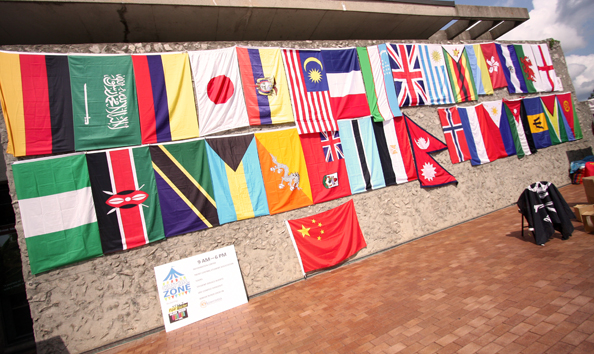
As of January 1, 2015, a new set of federal rules concerning international student permanent residency (PR) and immigration laws came into effect.
Previously, international students were clearly prioritized in the PR process post-graduation, however, the new Express Entry system places graduating international students within a pool of applicants for PR. Candidates are then selected and approved based on a skills-based point system and available Canadian jobs. The shifting immigration laws and the implications that they may pose for international students have been a source of widespread debate.
International students must now compete with other skilled workers to acquire their PR, with little or no regard to their Canadian university degree. The Canadian government argues that one of the main reasons for this change is to ‘revolutionize’ the way that Canada attracts skilled immigrants, as the points-system is mostly economic based. In addition, this Express Entry system is also thought to be more efficient in sorting through applicants, as it is a computerized process that classifies applicants based on their potential to contribute to the Canadian economy.
This new system poses a series of perceived challenges and concerns for international students in Canadian educational institutions. Eugenia Ochoa, a third-year international student at Trent from El Salvador, expressed her concerns with these laws. Ochoa argues that Canada’s previous immigration laws were one of the deciding factors in her decision to come to Canada, as they “not only promised a viable path after graduation, but also encouraged me, as it made me feel as though I could eventually become a productive and valuable member of the Canadian society.”
Ochoa feels that the new immigration laws, which would place her in competition with other skilled workers that potentially would have more work experience than a recent graduate, are “reducing my chances and ultimately conveying to me that I gained nothing, no degree of difference, in investing time, effort, and financial resources in attaining a Canadian degree.” Although she highly values her experience in a Canadian university, and acknowledges the quality of the education and support she has experienced at Trent, these new immigration laws evidently raise concerns.
Ochoa is not the only international student who feels that her chances of obtaining PR are threatened by these laws, as numerous publications in the media have expressed a similar sentiment from international students.
Dr. Michael Alcott, Director of the Trent International Program (TIP) has a different opinion on the new immigration laws. He states, “we are worried about what these new regulations are going to mean, but the messages from the government are positive.”
Dr. Alcott argues that he was confident in the assurance that he has received from the Association of Universities and Colleges of Canada, as the association was “reassured by CIC that under the new changes international students would continue to be a priority for the pathways to permanent residency.”
In regards to the Express Entry system, Dr. Alcott hopes that “for the international student who is already in Canada and has been here for some time, who already has their work permit, and has the support of our career centre and the support of our university, the likelihood that they are going to be able to secure a job offer and secure those extra points is very high compared to many other people who are seeking the opportunity from outside of Canada.”
In addition, he stated that the Trent International Program would remain committed to providing support for international students to facilitate their post-graduation experience.
Although there has been a mixture of responses in regards to the new immigration laws that range from skepticism to support and assurance, the actual effects and implications that this shift may have will only be visible with time.
Many international students come to Canada because of what was previously perceived as an immigration process that favoured international students who had already invested time and resources into the country, and were better adapted to fit into Canadian society.
The new immigration laws do not reflect this “leg-up” that was previously granted to international students. In addition, the economic rationale behind the new PR process potentially obscures other dimensions of immigration, including the multiculturalism and social capital that Canada has often been praised for.
A points-based and economically oriented system ignores the numerous alternative aspects that are desirable in a Canadian permanent resident.
Dr. Alcott states, “I want to see how it is going to work out.” We all do.
